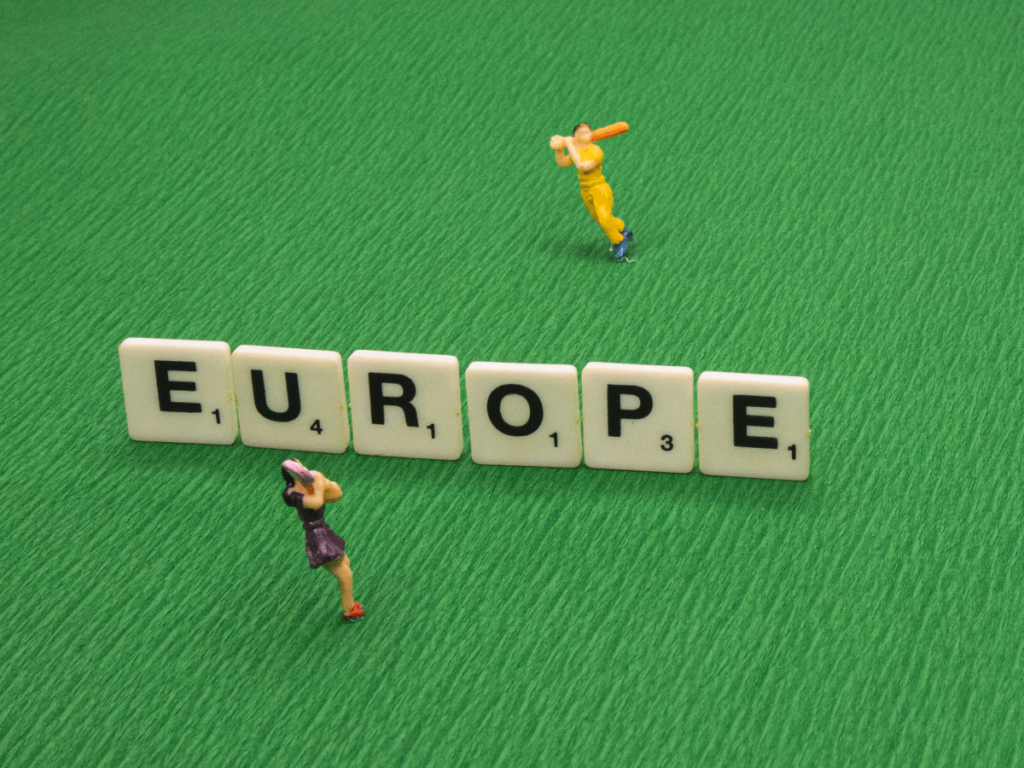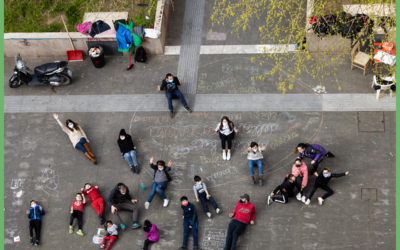
15 – 18 yo
Out of its 27 member states, the European Union has 24 official working languages, although many more are spoken in daily life across the continent. So how are all of these countries capable of successfully working together? The key is multilingualism, which refers to speaking and understanding multiple languages instead of only your own mother tongue. Multilingualism is one of the founding principles of the United Nations, a core value of the organisation, and an enabler of diplomacy and collaboration between countries. Multilingualism can contribute to global peace and security, and is a driver of justice and human rights. But how to achieve multilingualism without access to a good education?
Education is a fundamental human right. However, according to UNESCO, 781 million adults in the world are illiterate – this corresponds roughly to the entire population of the continent of Europe – and 63 million secondary-level children are out of school. According to United 4 Social Change, youth unemployment has remained around 22% since 2005. That’s where the Sustainable Development Goals come in: SDG 4 aims to provide inclusive and quality education, promote lifelong learning, literacy skills and social skills by 2030. Meanwhile, SDG 8 sets the goal of increasing economic productivity involving the diversification of employees.
Not only can education allow people to lead safer and healthier lives; it promotes an equal society and helps us acquire the skills necessary to find a good job, skills like digital literacy and of course, the ability to communicate with others in another language. Besides, education doesn’t have to stop at a certain age. It can be used at any point in life, such as for a change in career path, or simply to expand your range of skills and knowledge.
It has become essential to gain the skills needed in order to adapt to the rapidly changing job market of today. According to the International Labour Organization, 200 million people didn’t have a job back in 2018. Knowing a language allows jobseekers to become more competitive when finding work, making them stand out from the crowd. With a language qualification under your belt, you’re much more likely to get a good job quickly. After all, when you study a language, you don’t just study the language itself; you cover all sorts of topics, such as another country’s literature, cinema, cultural traditions, history and political situation. This very much helps to develop your entire skill set, and not just your language knowledge.
One of the best things about studying a language at university is that many institutions offer a semester abroad. Living abroad can be a very rewarding experience, as it encourages you to immerse yourself into another culture and make lifelong friends, which is the best way to understand the way a language works. Some students study at a university in the country of their target language, while others attend placements in schools as a teaching assistant.
So which languages are the best ones to learn? According to the British Council, the 10 most important languages other than English are Spanish, Arabic, French, Mandarin, German, Portuguese, Italian, Russian, Turkish and Japanese. Spanish is heard throughout Latin America, and is widely spoken in the US. Portuguese is also present in South America, as it’s the main language spoken in Brazil. English, French and German are the working languages of the EU, and in Africa, knowledge of Arabic, French and Portuguese can also be very useful. With the US being the current dominant superpower, English is regarded as an international language, but with China’s population of 1.4 billion along with its rising economy, Mandarin is becoming more and more prevalent on the world stage.
Everybody has their own reasons for wanting to pick up one language over another. People who live in countries with more than one official language, like Belgium for example, might want to learn Dutch if their mother tongue is French, or vice versa. If you’re from Estonia and occasionally travel to Helsinki, you may choose to learn Finnish. Some countries have several languages, like Switzerland, which is split between French and German, with a small region of Italian speakers in the south. Other countries like Spain have one dominant language as well as regional ones such as Catalan, Basque and Galician. Then you get dialect variants of the same language, such as Flemish spoken in Flanders, Scouse in Liverpool and Ch’ti in Picardie, making language studies all the more entertaining!
Learning languages broadens the mind and teaches us that people from other cultures think differently, making us more open-minded and accepting of others. According to various studies, it’s also good for the brain because it improves your memory and general intelligence. Knowing another language makes you better at decision-making, and has been shown to help people avoid developing dementia.
Being able to speak more than one language is important in the world of today. Not only is it good for our mental health; it lets us share ideas with one another and work alongside each other for a better future. But this is currently not accessible to many without access to a proper education. Thanks to SDG 4 aiming to provide everyone with a quality education, multilingualism will allow us to connect with others at home and around the world, reaping the benefits of living in a truly global community.












0 commentaires